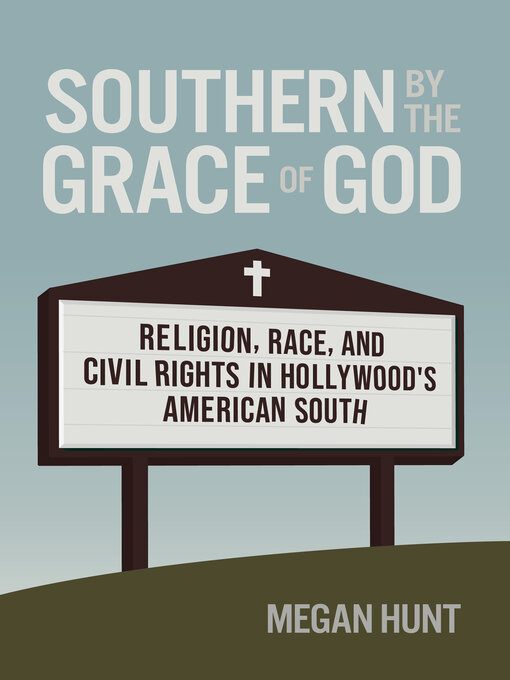Like the media coverage of the civil rights era itself, Hollywood dramas have reinforced regional stereotypes of race, class, and gender to cleanse and redeem the wider nation from the implications of systemic racism. As Southern by the Grace of God reveals, however, Hollywood manipulates southern religion (in particular) to further enhance this pattern of difference and regional exceptionalism, consistently displacing broader American racism through a representation of the poor white southerner who is as religious as he (and it is always a he) is racist. By foregrounding the role of religion in these characterizations, Megan Hunt illuminates the pernicious intersections between Hollywood and southern exceptionalism, a long-standing U.S. nationalist discourse that has assigned racial problems to the errant South alone, enabling white supremacy to not only endure but reproduce throughout the nation.
Southern by the Grace of God examines the presentation and functions of Protestant Christianity in cinematic depictions of the American South. Hunt argues that religion is an understudied signifier of the South on film, used—with varying degrees of sophistication—to define the region's presumed exceptionalism for regional, national, and international audiences. Rooted in close textual analysis and primary research into the production and reception of more than twenty Hollywood films that engage with the civil rights movement and/or its legacy, this book provides detailed case studies of films that use southern religiosity to negotiate American anxieties around race, class, and gender. Religion, Hunt contends, is an integral trope of the South in popular culture and especially crucial to the divisions essential to Hollywood storytelling.
- Available now
- New eBook additions
- New kids additions
- New teen additions
- Most popular
- Try something different
- African American Fiction
- Rediscover these titles!
- Urban Fiction
- Provided by a grant from the FINRA Investor Education Foundation
- Westerns
- See all ebooks collections
- Available now
- New audiobook additions
- New kids additions
- New teen additions
- Most popular
- Try something different
- See all audiobooks collections
- Health & Fitness
- Food & Cooking
- Tech & Gaming
- Family & Parenting
- News & Politics
- Business & Finance
- Photography
- Travel & Outdoor
- Home & Garden
- Fashion
- Celebrity
- Kids & Teens
- Comics & Manga
- See all magazines collections

